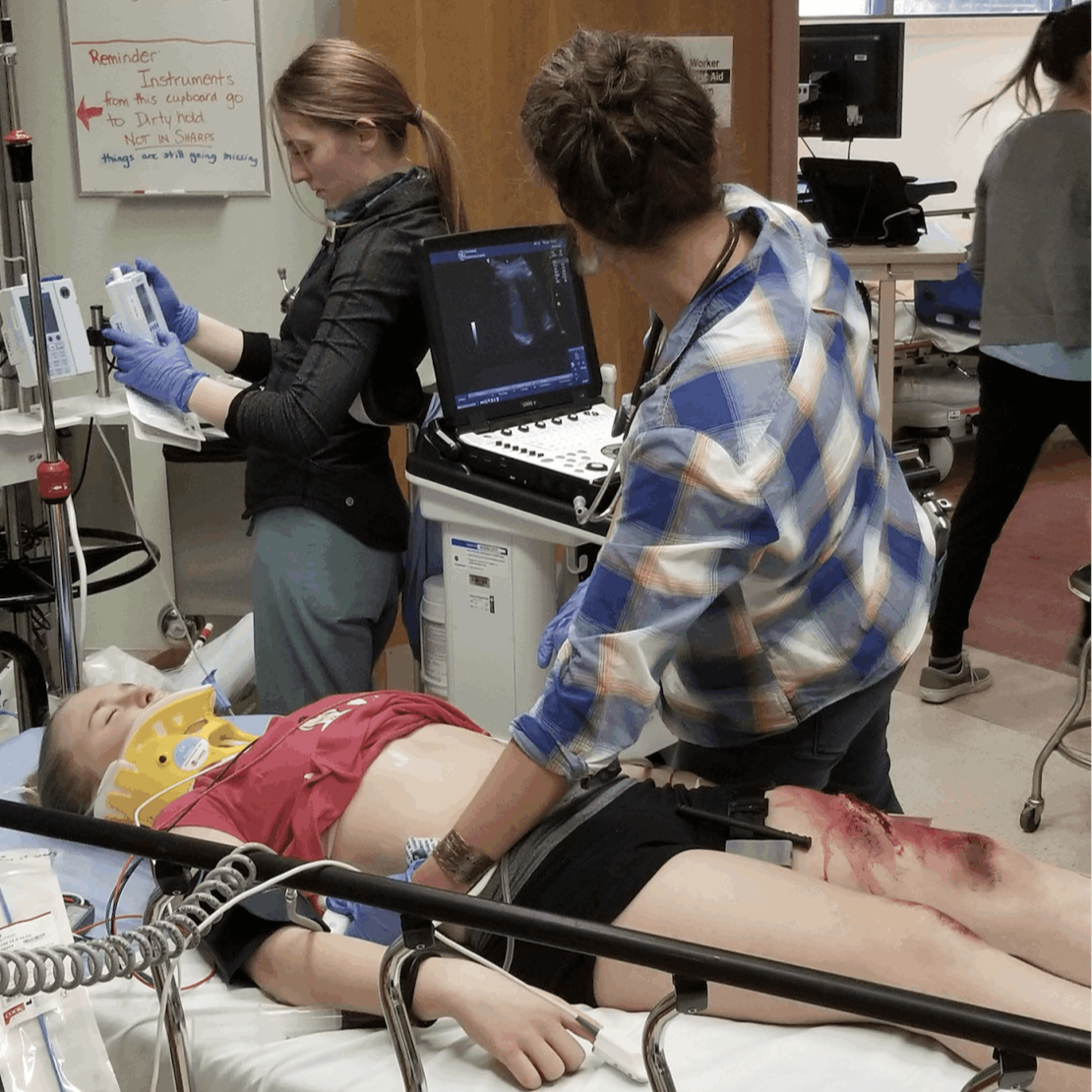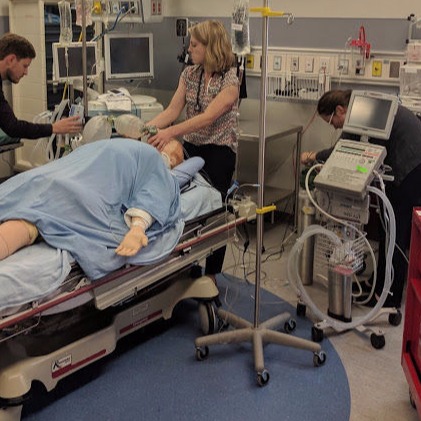This is a letter to support RnR Rounds, especially as a valuable learning tool during residency. In [my] family practice residency we did get to practice Code Blue simulations and have a few simulations throughout the year but really if you’re going to practice in a rural family medicine run ER post residency I felt like I needed to supplement the curriculum to feel comfortable and proficient.
RnR Rounds were one of the best ways to gain and practice skills needed in a rural ER. I found the simulations were highly realistic as to what a rural doctor would have to face. It was also really valuable having doctors from all years of experience taking part in RnR simulations. This allowed doctors with more experience to share their medical knowledge and common challenges they have faced in similar situations. It also allowed newer docs to see it’s ok to still be nervous and even experienced docs need the practice to keep their skills up to date!
I can say that one of the reasons I felt more comfortable signing up for rural locums with ER work post residency was thanks to RnR Rounds.
Arielle Nowell MD CCFP


I participated in this program during my residency (July 2016-July 2018), and I found it an invaluable element of my training. I continue to participate in this program as a staff physician.
Although [my] residency program provided 2 simulation sessions and additional optional “mock-codes”, RnR Rounds provided me with additional, focused sessions to improve my comfort with critical care scenarios in rural emergency departments.
The approach to critical care in a rural environment can differ significantly from that in tertiary care. Managing the challenges of rural emergencies without on-site specialty support is not something that was covered in depth in my residency training. Therefore, I would encourage resident physicians who intend to pursue rural work to participate in RnR Rounds to enhance their skills in this clinical setting.
Leigh Sadler MD CCFP